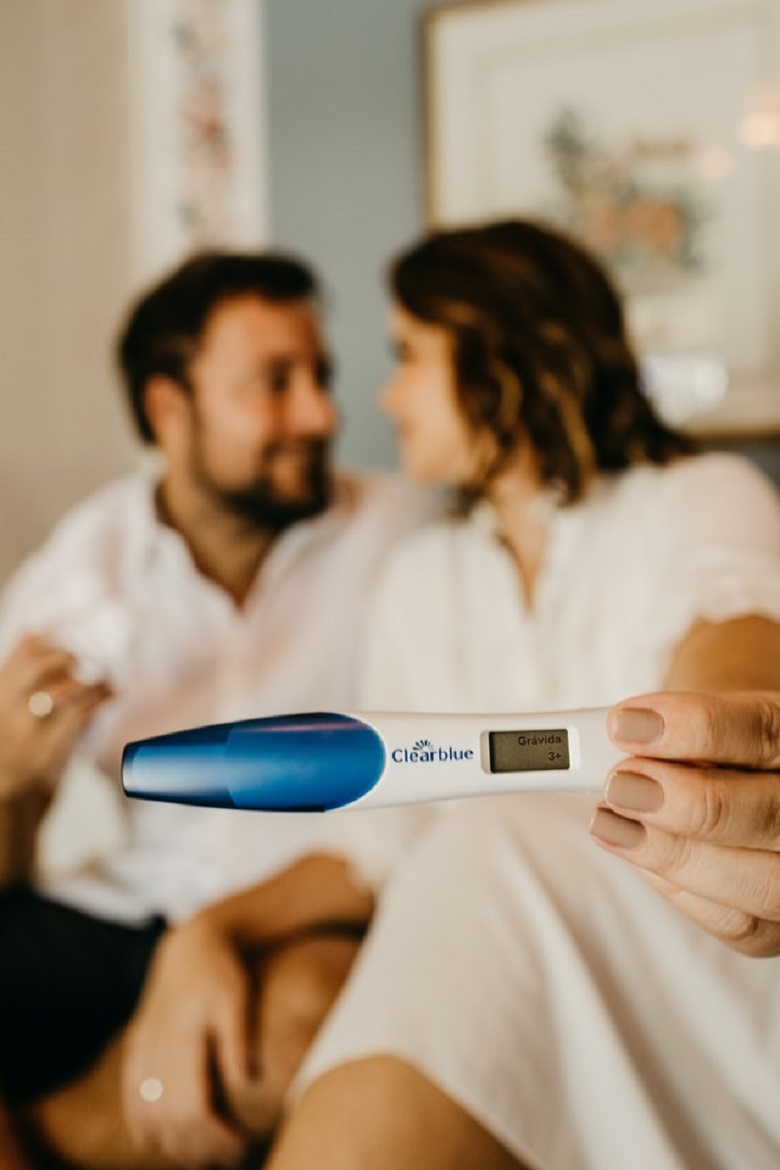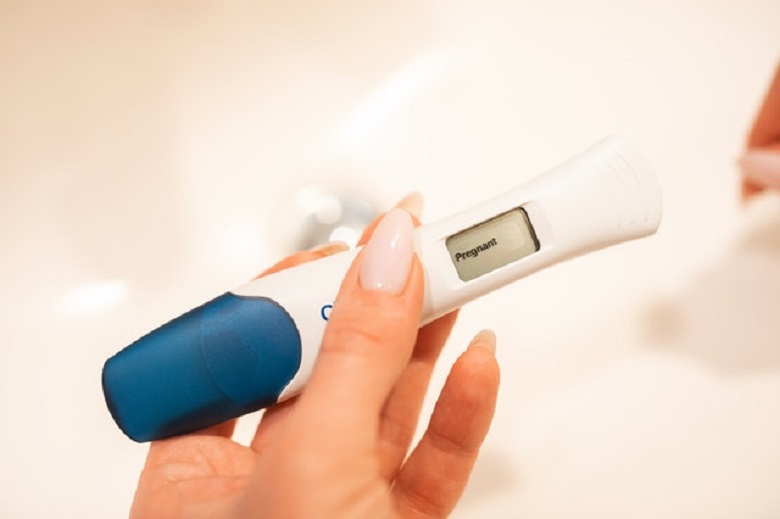The entire period of pregnancy is very challenging for many women. You experience a lot of things for the first time, which your body had no idea about! Often, slight implantation bleedings cause women to doubt their pregnancy. So, there is a widespread concern about whether or not can you take a pregnancy test during implantation bleeding?
The implantation process is usually 1-3 days long. During this time, changes occur in the level of certain hormones, especially hCG. So, it is better to wait for some days before taking a pregnancy test, after experiencing implantation bleeding.
If you are experiencing implantation bleeding, you must be clear about all the related issues. You should know what happens during implantation, when to take a pregnancy test, and what could cause a false-positive result. So, to learn more about these issues, please read the entire article.

Does Implantation Bleeding Affect Pregnancy Tests?
Yes, implantation bleeding or implantation can affect the result of a pregnancy test. Due to an unsatisfactory rise in hormonal levels, a pregnancy test may show a false negative. Here’s how and why.
Some of these terms may be new for our young mothers. To understand all about implantation and how it’s related to your pregnancy test results, keep reading!
ALSO READ:
When do pregnancy cravings start?
Implantation Bleeding
Implantation is a part of the reproductive process. Basically, after a successful conception, the male sperm and the female ovum unite to form a zygote. This zygote undergoes several divisions and forms a cell cluster known as the blastocyst.
After that, the blastocyst then travels to the uterus and gets embedded in the uterine wall. This process is called implantation. This implantation process is the ultimate underpinning of your entire pregnancy.
Moreover, the uterine wall is a highly vascular area. When the blastocyst embeds, it puts pressure on the blood vessels. Ultimately, it causes leakage of blood from the uterine wall, which is very slight in amount. This mild bleeding then manifests as implantation bleeding in the early days of pregnancy.
Sometimes, bleeding in early pregnancy may also occur due to some other complications. Studies from The American College of Obstetricians and Gynaecologists have shown these causes too. You can consult them on their page. Check out the articles to find out about these studies.
Timing Of Implantation Bleeding
Generally, implantation occurs about 8 to 10 days after ovulation. Implantation bleeding occurs simultaneously. Ovulation is the time when your ovaries are producing a viable egg.
It happens every month, about two weeks after your menstrual period starts. So, if the egg finds a sperm to unite, fertilization occurs. And after that, implantation occurs.
Say you were ovulating and had intercourse on the 1st of May. And you had your period about two weeks back. So, if fertilization occurred, your implantation is likely to happen between 8th and 10th May. Implantation bleeding also occurs during this period.
However, if you are a regularly menstruating woman, your next menstrual period should also start simultaneously. This is for women with a 28-day cycle. In the above case scenario, your menstrual period is also due around the 10th of May. So, don’t confuse the two as the same!
How Is Implantation Related To Pregnancy Tests?
During implantation, a hormone called the Human Chorionic Gonadotropin (hCG) is released from the blastocyst. Actually, the growing embryo produces it, which is now just a cluster of cells. hCG is the same hormone that is detected by pregnancy kits to determine pregnancy. And that is how implantation bleeding can mess with pregnancy tests.
During the entire period of pregnancy, the hCG level keeps on rising and falling. Mainly, this hCG is responsible for all the changes in your body during pregnancy.
The doubling time of hCG is two days. That is, it takes 48 hours for hCG levels in your blood to become double. You know, the surest pregnancy test is the blood test. Blood tests can confirm pregnancy very early, just a few days after ovulation.
But the strip tests or test kits available in the pharmacies detect hCG in the urine to confirm pregnancy. Usually, it takes some time for hCG to rise as much to be detectable in urine. To be fair, this may take about 7 to 10 days after a successful conception.
Initially, during implantation bleeding, the rise in hCG may not be satisfactory to be detected in the strip tests. It requires at least 20 to 50 mIU/ml.
However, in blood tests, the test becomes positive when hCG levels reach 25 mIU/ml. But these levels remain low early in the pregnancy.
When Is the Right Time To Take A Pregnancy Test?
You must wait for at least 4-5 days before taking a pregnancy test after experiencing implantation bleeding. Otherwise, the results may not be accurate.
As mentioned above, implantation causes changes in hCG levels. This hCG is the core center of your pregnancy. Its levels confirm pregnancy tests. So, a slight increase or decrease may show otherwise.
The trophoblastic cells of the growing blastocyst release the Human Chorionic Gonadotropin hormone. When it reaches satisfactory levels, the result of your test is positive.
In strip tests, it manifests as two bars or a color change; or it directly shows the word ‘Pregnant.’ On the other hand, the rise in hCG level confirms pregnancy in blood tests.
The doubling time of hCG is very long, about 48 hours. So, during implantation bleeding, which lasts for two days max, the rise in hCG may not be adequate. You must wait for at least four or five days after implantation bleeding from taking a test.
Otherwise, it may be too early for the results to be accurate. Eventually, you may end up getting a false negative impact. So, always wait for a few days.
Is It Implantation Bleeding Or Your Period?
Usually, it is the most common concern among mothers after they notice some implantation bleeding. Often, they confuse this bleeding with a menstrual period. And thus, an expected pregnancy may go undetected! This happens because your next menstrual period is bound to occur around the same time.
So, there are some fundamental differences by which you can distinguish between the two. For instance, implantation bleeding is very minute in amount, ranging from a few drops to a few ml. But the amount of menstrual blood is much higher and can be up to 80 ml!
The flow of menstrual blood is also very high initially. Besides, implantation bleeding lasts only up to 48 hours or fewer than that. On the other hand, a menstrual period can last 5 to 7 days.
Furthermore, the color of implantation blood is pinkish, and clots do not accompany it. Period blood contains clots and is much darker. Also, a woman in implantation will show early pregnancy symptoms; For example, nausea, frequency of urination, cramps, etc. In comparison, a menstruating woman can have PMS, acne, severe cramps, etc.
The only way to know if it’s implantation bleeding is to do a pregnancy test. Nonetheless, there are specific reasons why a pregnancy test may give you the wrong results.
However, taking a pregnancy test right after you experience implantation bleeding may also give rise to confusion. So, wait a while and then take the test.
Conclusion
To repeat briefly, you should always wait 4-5 days after implantation bleeding to get accurate results on your pregnancy test.
Pregnancy is a life-changing experience for any mother. You are not alone in this, other women also have the same worries, the same questions as you. The potential effects (i.e. hair loss, skin problems) you will experience are drastic, but in the end, it’s worth it.
To learn more about being a mom, visit our other blogs!

